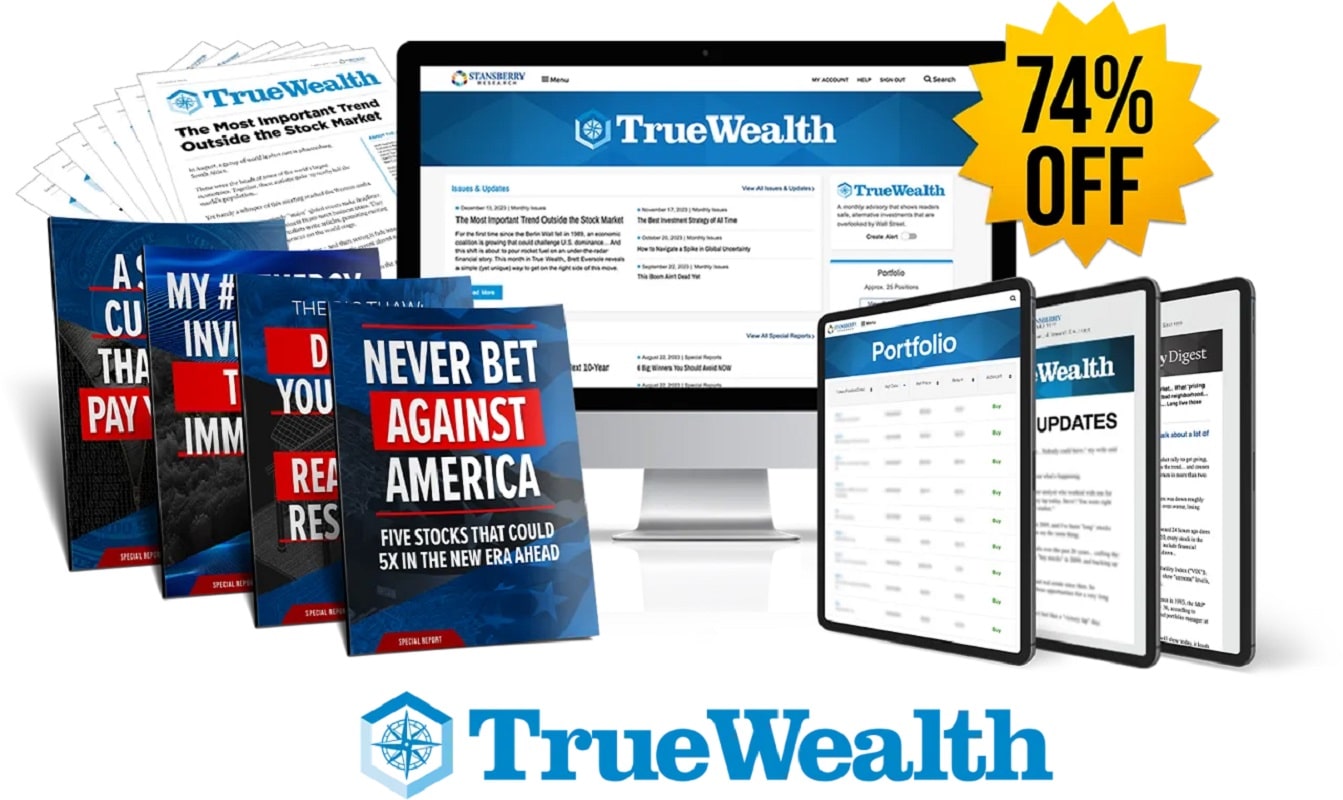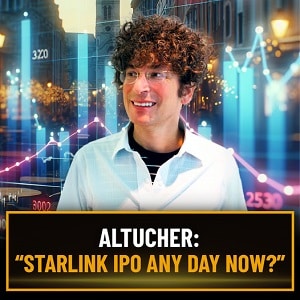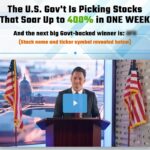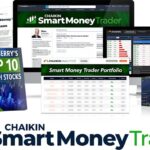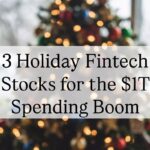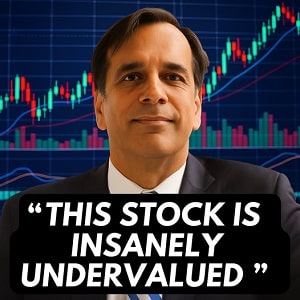In the ever-evolving world of financial markets, finding reliable guidance can feel like searching for a needle in a haystack. Brett Eversole, a self-described “quant” and 14-year veteran of financial research claims to offer investors a lifeline through his advisory service, True Wealth, published by Stansberry Research.
In a detailed broadcast hosted by Kelly Brown, Eversole presents a compelling case for what he calls a “Cash Tsunami”—a multitrillion-dollar force poised to reshape Wall Street and create unprecedented wealth-building opportunities. With promises of triple-digit gains, a free stock recommendation, and access to exclusive research reports, Eversole’s pitch is bold and enticing. But is it legitimate? This review dives deep into the Eversole’s presentation to evaluate the credibility of his claims, the value of his service, and whether True Wealth is worth your time and money.
Who Is Brett Eversole?
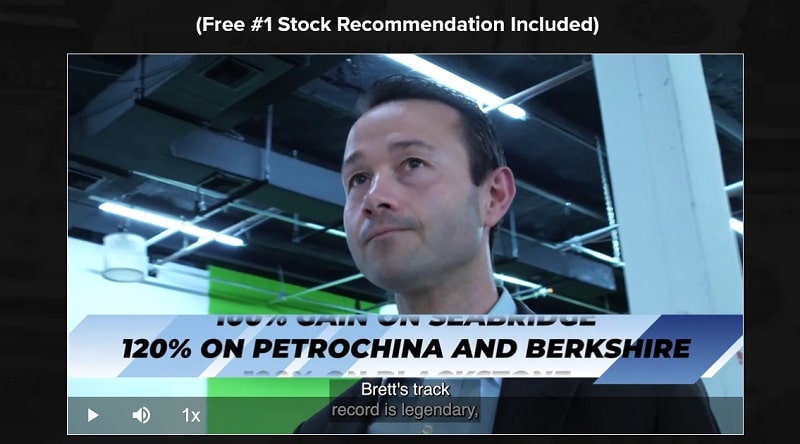
Brett Eversole is introduced as a Wall Street “quant”—a term typically reserved for analysts who use advanced mathematics and data analysis to predict market trends.
Around Stansberry Research, he’s dubbed a “human supercomputer,” a nod to his mathematical prowess and analytical skills. With over 14 years in financial research, Eversole boasts a track record of 255 winning stock recommendations across various sectors, positioning him as one of the firm’s most respected analysts.
His background is relatable: hailing from a struggling Midwestern town in Indiana, he worked his way up from humble beginnings to living on a Florida island near celebrities like John Grisham and Oprah Winfrey. Mentored by Dr. Steve Sjuggerud, a legendary figure at Stansberry Research, Eversole credits his data-driven approach to his success. But does his pedigree translate into actionable, trustworthy advice?
The Core Prediction: The Cash Tsunami
At the heart of Eversole’s presentation is the “Cash Tsunami,” a metaphor for a massive influx of sidelined cash—$6.9 trillion, to be exact—currently parked in low-yield money market accounts.
He argues that this capital, amassed during periods of economic uncertainty like the COVID-19 pandemic, inflation spikes, and geopolitical tensions, is poised to flood back into stocks as confidence returns. This phenomenon, he claims, could trigger a “virtuous cycle” of wealth creation, driving a multiyear bull market with the potential to mint “thousands or even tens of thousands of new millionaires.”
Eversole supports his thesis with historical examples:
– Post-WWII (1940s-1950s): After economic uncertainty, cash flowed back into stocks, leading to a 242% market surge within a decade.
– 1973 Oil Crisis: Fear subsided, and markets rebounded as confidence returned.
– Post-2008 Financial Crisis: A $3.8 trillion cash pile fueled a 500% S&P 500 rally over 10 years.
– Post-Pandemic (2020-2024): Nearly $5 trillion in sidelined cash contributed to a 120% market rebound.
He ties the current moment to these precedents, citing a record $6.9 trillion in money markets as of March 31, 2025, alongside catalysts like deregulation, lower taxes, and potential Federal Reserve rate cuts under a business-friendly administration.
Quotes from billionaire investor Stanley Druckenmiller—“CEOs are somewhere between relieved and giddy”—and optimistic forecasts from banks like Morgan Stanley and J.P. Morgan bolster his narrative.
Eversole predicts this could push the Dow to 150,000 by decade’s end—a staggering 250%+ increase from its current level—though he acknowledges inevitable corrections along the way.
The True Wealth Approach
Eversole’s True Wealth service is built on a three-pronged investment philosophy:
1. Cheap: Stocks must be undervalued relative to the market (e.g., S&P 600’s 18x P/E vs. the “Magnificent Seven” at 59x).
2. Uptrend: Stocks must show upward price momentum, capitalizing on the tendency of winners to keep winning.
3. Hated: Stocks should be underappreciated or off the radar, avoiding overhyped names like Nvidia or Tesla.
This contrarian, data-driven strategy echoes Warren Buffett’s advice to “never bet against America,” a mantra Eversole repeats throughout the broadcast.
He contrasts his picks with the “Magnificent Seven” (Amazon, Apple, Alphabet, Microsoft, Meta, Tesla, Nvidia), arguing that while these tech giants have soared 180% in two years, their high valuations limit future explosive growth.
Instead, he targets smaller, lesser-known companies—particularly in the Russell 2000 index—that could benefit from a rebounding economy, AI proliferation, and the “Cash Tsunami.”
What You Get with True Wealth?
For those intrigued by Eversole’s pitch, True Wealth offers a comprehensive package:
– Monthly Newsletter: A new stock recommendation each month, vetted through decades of data, with clear “buy” or “sell” instructions and stop-loss guidance to minimize losses.
– Three Special Reports:
1. “Never Bet Against America: Five Stocks That Could 5X in the New Era Ahead” – Five picks poised to double, triple, or 5x over five years, including a “cash machine” with $16 billion in reserves and a gold-mining play.
2. “The Big Thaw: How to Double Your Money on a Real Estate Resurgence” – A tech-savvy property stock expected to double as falling rates unfreeze the housing market.
3. “My #1 Energy Investment to Buy Immediately” – An energy play capitalizing on AI-driven demand and Trump’s “energy emergency” declaration.
– Free Stock Pick: Palo Alto Networks (PANW), a cybersecurity leader Eversole predicts could rise 300%+ as AI heightens data security needs.
– Model Portfolio: Access to over two dozen recommendations spanning oil, gas, gold, semiconductors, and more.
– Trial Subscription: A discounted rate (typically $499/year, now lower at $129 per year) with a full-refunded trial period.
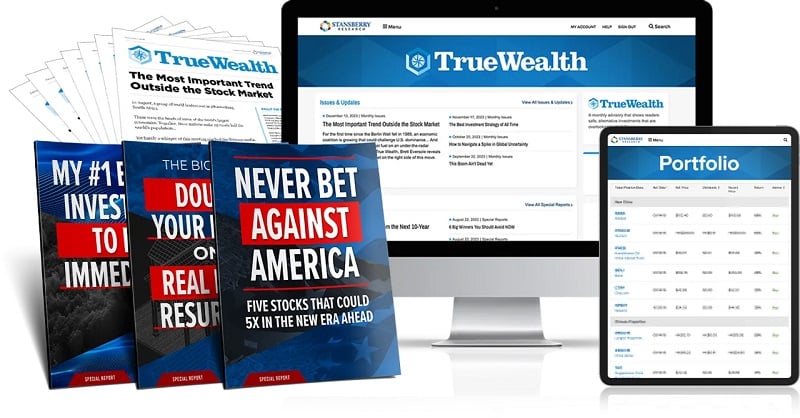
Eversole emphasizes simplicity, targeting readers like his parents—smart but busy individuals who need actionable advice without Wall Street jargon.
Testimonials from subscribers like Daniel S. ($400K+ portfolio), Jim M. ($2.4M portfolio), and Raymond P. (hundreds of thousands in gains) highlight the service’s impact, though disclaimers note that such results aren’t guaranteed and investing carries risks.
Evidence of Legitimacy
Several factors lend credibility to Eversole and his True Wealth service:
– Track Record: The claimed 255 winning recommendations, with gains like 705% on a financial stock and 330% on a health care fund, suggest a history of success. Stansberry Research backs these claims with a disclosures page, though past performance isn’t a future guarantee.
– Historical Parallels: Eversole’s “Cash Tsunami” theory aligns with observable patterns of cash inflows driving bull markets, supported by S&P 500 charts and money market data.
– Reputable Affiliation: Stansberry Research, a well-known financial publisher, has a long history of delivering research, though it’s not immune to criticism for aggressive marketing.
– Transparency: Eversole acknowledges risks—market corrections, tariff uncertainties, national debt—and provides stop-loss strategies, showing a balanced approach.
– Endorsements: Quotes from Druckenmiller, Buffett, and major banks lend external validation to his optimistic outlook.
His free recommendation, PANW, is a real, publicly traded company with a strong cybersecurity niche, not a speculative penny stock, further grounding his pitch in reality.
Potential Red Flags
Despite its strengths, True Wealth isn’t without scrutiny:
– Bold Predictions: A Dow of 150,000 is an eye-popping forecast that’s easy to dismiss as hype. While Eversole ties it to historical trends, it assumes uninterrupted growth—a risky bet given inevitable corrections.
– Sales Tactics: The broadcast’s urgency (“act now or miss out”) and discounted trial offer are classic marketing ploys, potentially pressuring viewers into quick decisions.
– Risk Downplay: While Eversole mentions risks, the focus on triple-digit gains might overshadow the reality that not all picks win, and losses are possible.
– Testimonial Bias: Highlighted success stories may not reflect the average subscriber experience, as disclaimers warn.
Addressing Counterarguments
Eversole anticipates skepticism and offers rebuttals:
– “The Market’s Too High”: He counters that crashes stem from a lack of buyers, not high prices, and the “Magnificent Seven” are cash-rich innovators, not meme stocks. Smaller stocks, he argues, have more room to run.
– “What If Rates Don’t Drop?”: Historical data (e.g., 17% gains after Fed pauses) and a centuries-long downward rate trend suggest cuts are likely, though he admits timing is uncertain.
– “Tariffs or Debt Could Derail It”: He posits tariffs may be a bluff and debt, while serious, hasn’t halted markets historically—$1,000 invested in 1980s debt-crisis fears would be $141,000 today.
These responses show Eversole’s preparedness, though they don’t eliminate all doubts.
Is It Worth It?
For potential subscribers, the value of True Wealth hinges on three questions:
1. Do You Buy the “Cash Tsunami” Thesis? If you agree that $6.9 trillion in sidelined cash, combined with deregulation and AI growth, could fuel a bull market, Eversole’s framework is compelling.
2. Can You Handle Risk? With an average gain of 15.2% since inception, True Wealth offers solid returns, but losses are possible, and bold picks like PANW carry volatility.
3. Do You Value Expert Guidance? The service’s data-driven approach, backed by Stansberry’s resources, provides a sophisticated edge for retail investors.
At a discounted trial rate with a refund option, the financial risk is low, making it an attractive test drive for those intrigued by Eversole’s vision.
True Wealth Real Users Reviews
Summary of Reviews
Overall Sentiment
The reviews of True Wealth on Stock Gumshoe website reveal a mixed but generally favorable impression, with an average rating hovering around 3.7 to 4.1 out of 5 across hundreds of votes (e.g., 4.1/5 from 141 votes in one snapshot).
Subscribers appreciate the newsletter’s contrarian, data-driven approach and its ability to identify profitable trends, particularly under Steve Sjuggerud’s earlier leadership.
However, opinions vary on its consistency, value for money, and relevance under Brett Eversole’s current stewardship. The feedback highlights both strengths (e.g., actionable ideas, historical wins) and weaknesses (e.g., marketing hype, occasional flops).
Positive Feedback
- Profitable Recommendations: Many subscribers report making significant gains, especially from Sjuggerud’s picks like gold coins, virtual banks, and Chinese stocks, with some claiming it’s outperformed other services. Eversole’s data-focused approach is seen as a continuation of this strength.
- Macro Insight: Reviewers praise the newsletter’s ability to spot big-picture trends (e.g., market “melt-ups”), providing a valuable starting point for personal research.
- Affordability: At $49-$129 annually, it’s often called a “good deal” for the research provided, especially compared to pricier Stansberry offerings.
- Educational Value: Readers enjoy the clear, down-to-earth writing, which helps novices and seasoned investors alike understand market dynamics.
Negative Feedback
- Inconsistent Picks: Some subscribers criticize recent stock selections under both Sjuggerud and Eversole, noting flops like Thornburg Mortgage (TMA) or Square (SQ), with losses outweighing gains for certain users.
- Marketing Overload: A common complaint is the relentless upselling and advertising from Stansberry, which detracts from the core service.
- Timing Issues: Several reviewers mention recommendations spiking in price after release due to Stansberry’s large readership, making entry points tricky, or Eversole jumping in too early on trends.
- Questionable Value Under Eversole: With Eversole taking over, some feel the newsletter has lost its edge, relying too heavily on computer systems rather than intuition, though this is less detailed in older reviews.
Transition to Eversole
While many reviews predate Eversole’s leadership (focusing on Sjuggerud), newer comments note his shift to a quantitative focus.
Some subscribers adapt positively to this evolution, valuing the systematic approach, while others question whether it matches Sjuggerud’s intuitive success. The lack of recent, specific feedback on Eversole’s tenure (post-2023) limits clarity, but the service retains a loyal base.
Example of a Positive Review
Reviewer: Anonymous (March 31, 2015)
Rating: Implied positive (no star rating specified in text)
Quote: “I have been a subscriber to True Wealth for years. The stocks I invested in did very well and I found his recommendations to more than pay for the small amount he charges for the investment letter. Not every investment is a big winner but most are profitable, especially if you follow his stop loss number.”
Example of a Negative Review
Reviewer: Anonymous (undated, but part of ongoing thread)
Rating: Implied negative (no star rating specified in text)
Quote: “I found that Sjuggerud’s macro predictions are often quite good but his stock picks are often lousy. A few have been winners but many are just average to nothing and some have been really serious losers like recent picks $LAMU and now $SQ (Square). Maybe my timing was just wrong but I’ve done much better following advice from some really sharp bloggers on the Seeking Alpha site (premium version).”
Conclusion
The Stock Gumshoe reviews paint True Wealth as a service with a solid reputation for delivering value and profitable ideas, particularly for those who use it as a research tool rather than a blind trading guide.
Under Brett Eversole, it maintains a data-driven legacy, but some subscribers question its recent performance and relevance amidst Stansberry’s marketing noise. Positive reviews emphasize gains and insight, while negative ones focus on inconsistency and overhype, offering a balanced perspective for potential subscribers as of March 31, 2025.
Final Word
Brett Eversole’s True Wealth is a legitimate service with a strong foundation: a seasoned analyst, a data-backed strategy, and a reputable publisher. His “Cash Tsunami” prediction is ambitious but rooted in historical patterns and current economic signals, offering a plausible roadmap for a multiyear bull market.
The service’s offerings—monthly picks, special reports, and a free recommendation like PANW—provide tangible value, especially for investors seeking under-the-radar opportunities. However, bold claims and marketing tactics warrant caution, and success isn’t guaranteed.
Is True Wealth worth it? For proactive investors who align with Eversole’s optimistic, contrarian outlook and can tolerate risk, it’s a credible tool to navigate the market’s next wave.
Explore the trial, but weigh the hype against your goals. As Eversole and Buffett agree: never bet against America—but always bet wisely.
FAQ: True Wealth by Brett Eversole
What is True Wealth, and who is Brett Eversole?
True Wealth is a monthly investment advisory service published by Stansberry Research, led by Brett Eversole, a 14-year veteran financial analyst and self-described “quant.” Known as a “human supercomputer” at Stansberry, Eversole uses a data-driven approach to recommend stocks. He claims a track record of 255 winning picks and hails from a humble Indiana background, now living on a Florida island.
What is the “Cash Tsunami” Eversole talks about?
The “Cash Tsunami” is Eversole’s term for $6.9 trillion in sidelined cash currently sitting in low-yield money market accounts as of March 31, 2025. He predicts this money will flood back into stocks as economic confidence grows, driven by factors like deregulation, lower taxes, and potential interest rate cuts, triggering a multiyear bull market.
How does Eversole pick stocks for True Wealth?
Eversole uses a three-pronged strategy: stocks must be cheap (undervalued compared to the market), in an uptrend (showing upward price momentum), and hated (underappreciated or off the radar). This contrarian approach targets lesser-known companies, like those in the Russell 2000, over hyped names like the “Magnificent Seven.”
What do I get if I subscribe to True Wealth?
Subscribers receive a monthly newsletter with a new stock pick, access to a model portfolio, and three special reports: “Never Bet Against America” (five stocks for 5x gains), “The Big Thaw” (a real estate play), and “My #1 Energy Investment” (an energy stock). You also get a free recommendation: Palo Alto Networks (PANW), touted for 300%+ potential.
Is Brett Eversole’s track record real?
Eversole claims 255 winning recommendations, with gains like 705% and 330%, backed by Stansberry Research’s disclosures. While past performance isn’t a future guarantee, the documented history and testimonials (e.g., subscribers growing portfolios to $400K-$2.4M) suggest credibility, though not all picks succeed.
How much does True Wealth cost?
The standard price is $499 per year, but Eversole offers a discounted trial rate at $129 per year. It includes a full-refunded trial period, reducing financial risk if you’re unsatisfied after reviewing the materials.
What’s the free stock pick, and why does he recommend it?
The free pick is Palo Alto Networks (PANW), a cybersecurity company. Eversole predicts a 300%+ rise due to growing demand for data security as AI usage expands among companies and cybercriminals, positioning PANW as a key player in an evolving market.
Can I trust the “Cash Tsunami” prediction?
The prediction is plausible, supported by historical examples (e.g., post-WWII 242% surge, post-2008 500% rally) and current data ($6.9 trillion in money markets). Quotes from experts like Stanley Druckenmiller and bank forecasts add weight, but bold claims like a Dow of 150,000 by decade’s end carry uncertainty and assume uninterrupted growth.
What are the risks of subscribing to True Wealth?
Investing always carries risk—some picks may lose value, and the average gain since inception is 15.2%, not triple-digit returns for all. The broadcast’s urgency and bold forecasts might overhype potential, and the exact cost isn’t upfront. Market corrections, tariffs, or debt issues could also disrupt the bull market thesis.
What if interest rates don’t drop as Eversole expects?
Eversole argues rates historically trend downward (e.g., 17% gains after Fed pauses, centuries-long decline from 35% in the 1300s), and even without cuts, deregulation and AI growth could still drive markets. However, delayed or absent rate cuts might slow the “Cash Tsunami” timeline.
Are there any red flags with True Wealth?
Potential concerns include aggressive marketing tactics (“act now” urgency), unspecified trial costs upfront, and bold predictions (Dow 150,000) that might overpromise. Success stories may not reflect typical results, and risks could be downplayed amid the focus on gains.
Who should subscribe to True Wealth?
It’s best for proactive investors who believe in a coming bull market, can tolerate risk, and value expert guidance. If you’re skeptical of bold forecasts or prefer low-risk options, it might not suit you. The trial’s low risk makes it worth exploring if you’re intrigued.
How do I sign up, and is there a guarantee?
Click here to sign up. The trial comes with a full-satisfaction guarantee—request a refund during the trial period if it’s not for you, ensuring you can test it without long-term commitment.
Is True Wealth legit?
Yes, it’s a legitimate service from a reputable publisher (Stansberry Research) with a seasoned analyst (Eversole). The strategy and track record are credible, but success isn’t guaranteed. Weigh the hype against your goals and risk tolerance before subscribing.

